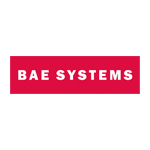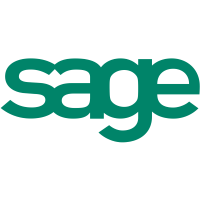London stocks were just a touch lower in early trade on Tuesday as worries about a US recession continued to dent sentiment, and as data showed that UK retail sales growth slowest last month.

At 0835 GMT, the FTSE 100 was down 0.1% at 8,595.94.
Matt Britzman, senior equity analyst at Hargreaves Lansdown, said: “UK markets have managed to find some footing after yesterday’s global market selloff, with the FTSE 100 broadly flat at the open. Markets are jittery and volatility seems like the only certainty while the White House pushes hard to usher in a new era, seemingly happy for stock markets to be collateral damage.
“US markets have finally faced a harsh reality that the Trump administration’s investor-friendly narrative was nothing more than a fantasy. They’re now pricing in a very real chance that the president’s carrot and stick approach to global politics will push the US into a recession.”
On home shores, data released earlier by the British Retail Consortium and KPMG showed that retail sales growth slowed again in February as poor fashion sales weighed down non-food spend.
The monthly BRC-KPMG Retail Sales Monitor report showed that UK retail sales rose at a year-on-year rate of 1.1% last month, compared with a 2.6% gain in January and the 3.2% growth registered in December.
However, while this was below the three-month average growth rate of 2.4%, this was still above the 12-month average of 0.8%.
Food sales were 2.3% higher than last February, though non-food sales were flat year-on-year.
“While sales growth across non-food categories was generally muted, it was propped up by online purchases, particularly in computing and electronics. Jewellery, watches and fragrance sold well thanks to Valentine’s Day, reversing declines seen last year, and furniture also returned to growth,” said Helen Dickinson, chief executive of the BRC.
“Fashion performed poorly due to the gloomy weather throughout the month, but retailers are hopeful the early March sunshine kickstarts spending on Spring and Summer wardrobes.”
Looking ahead, Dickinson said retailers will have “little choice” but to raise prices or cut investment ahead of the £7bn in new costs, with higher wage bills, National Insurance contributions and a new packaging levy set to kick in.
“It is time for government to course correct to ensure investment and growth are not undermined,” she said.
In equity markets, airlines were in the red, with BA and Iberia owner IAG and easyJet the worst performers on the FTSE 100.
Banks also fell, with Standard Chartered, Barclays and Lloyds all weaker.
Infrastructure services firm Kier Group slumped even as it posted a rise in first-half profit and revenue and lifted its dividend as it hailed a record order book.
Spirax Group lost ground even as it said it managed to grow organic revenues across the board in 2024 despite industrial production growth being weaker than expected in the second half.
On the upside, housebuilder Persimmon surged to the top of the FTSE 100 as it reported a 10% jump in full-year underlying pre-tax profit to £395.1m, comfortably ahead of consensus expectations of £384m.
Barratt Redrow, Taylor Wimpey, Berkeley, Crest Nicholson and Vistry also racked up strong gains.
Elsewhere, Rotork, Genuit and TP Icap also rose on the back of results.
Top 10 FTSE 100 Risers
| Sponsored by Plus500 |
|
| # | Name | Change Pct | Change | Cur Price | |
|---|---|---|---|---|---|
| 1 |  |
Gen.acc.7se.pf | +8.64% | +10.50 | 132.00 |
| 2 |  |
Gen.acc.8se.pf | +8.50% | +11.75 | 150.00 |
| 3 |  |
Barratt Redrow Plc | +3.66% | +15.60 | 442.40 |
| 4 |  |
Mondi Plc | +2.59% | +32.50 | 1,286.00 |
| 5 |  |
Segro Plc | +2.17% | +15.00 | 707.60 |
| 6 |  |
South32 Limited | +2.08% | +3.60 | 176.80 |
| 7 |  |
London Stock Exchange Group Plc | +1.82% | +195.00 | 10,890.00 |
| 8 |  |
Anglo American Plc | +1.79% | +40.50 | 2,298.00 |
| 9 |  |
Bae Systems Plc | +1.75% | +27.50 | 1,596.50 |
| 10 |  |
Ck Infrastructure Holdings Limited | +1.74% | +9.35 | 547.40 |
Top 10 FTSE 100 Fallers
| Sponsored by Plus500 |
|
| # | Name | Change Pct | Change | Cur Price | |
|---|---|---|---|---|---|
| 1 |  |
International Consolidated Airlines Group S.a. | -4.70% | -14.60 | 295.90 |
| 2 |  |
Intercontinental Hotels Group Plc | -2.88% | -262.00 | 8,838.00 |
| 3 |  |
Marks And Spencer Group Plc | -2.46% | -8.90 | 353.50 |
| 4 |  |
Carnival Plc | -2.36% | -32.50 | 1,347.50 |
| 5 |  |
Barclays | -2.07% | -5.90 | 278.65 |
| 6 |  |
Standard Chartered Plc | -2.05% | -24.00 | 1,146.50 |
| 7 |  |
Lloyds Banking Group Plc | -1.94% | -1.34 | 67.84 |
| 8 |  |
Ferguson Enterprises Inc. | -1.92% | -250.00 | 12,750.00 |
| 9 |  |
The Sage Group Plc | -1.68% | -20.50 | 1,199.00 |
| 10 |  |
Sant Uk.8fepf | -1.48% | -2.00 | 133.00 |
US close: Mass sell-off sends S&P 500, Nasdaq to six-month lows
US stocks tumbled on Monday with the banking and tech sectors bearing the brunt of a mass sell-off on the back of fears about the economic outlook after Donald Trump refused to rule out a recession this year.
The Dow dropped 2.1% to finish at 41,911.71; the S&P 500 sank 2.7% to 5,614.56; while the Nasdaq plummeted 4% to 17,468.32 in its worst daily performance since 2022. This was the S&P 500’s and Nasdaq’s lowest finishes since mid-September.
“The US market sell-off is starting to look ugly,” said Dan Coatsworth, investment analyst at AJ Bell, citing investor concerns about a trade war, geopolitics and the uncertain economic outlook.
Stocks dropped from the jump after Donald Trump avoided answering a question about the possibility of a recession due to newly implemented White House tariffs. “I hate to predict things like that. There is a period of transition because what we’re doing is very big,” he said in an interview with Fox News on Sunday.
Markets were volatile last week after Trump suspended newly imposed tariffs on Mexico and Canada, adding uncertainty to trade policies worldwide. Meanwhile economists have also voiced concerns that increased deportations, government layoffs and rising inflationary pressures could weaken the labour market in the coming months.
Over the past month alone, the Dow, S&P 500 and Nasdaq have fallen 5.8%, 7.5% and 11.4%, respectively.
“Four months ago, Donald Trump was seen as the market’s saviour, promising lower taxes and less stringent regulation. Now his actions represent the harbinger of doom. The R word is back on everyone’s lips as people ponder if trade tariffs will backfire and lead to recession rather than US economic prosperity,” Coatsworth said.
While the macro docket was empty on Monday, market participants were looking ahead to February’s consumer price index report on Wednesday and the producer price index on Thursday.
Market movers
Economic bellwethers in the banking sector were among the day’s worst performers, with JPMorgan Chase, Citigroup, Wells Fargo, Bank of America, Morgan Stanley and Goldman Sachs all under pressure.
Tech stocks on the whole were out of favour, with chip giant Nvidia among the heaviest fallers as it continues its recent downward trend. The stock has now fallen by around a fifth over the past month alone.
Heavyweights Apple, Amazon, Microsoft, Broadcom and Intel were also registering steep losses. Other high-growth tech stocks that helped equity markets to their recent records were also suffering, such as MicroStrategy and Palantir.
Electric car maker Tesla was also falling sharply, dropping nearly 16% as the company continues to feel the heat from an ongoing backlash against controversial founder Elon Musk, along with renewed concerns about a slowdown in the EV sector. The stock has now erased all of its gains made since Trump entered the White House, having now plunged more than 50% since hitting a record high in December.
DoorDash finished in the red but outperformed wider markets after it was reported that the takeout logistics provider would join the S&P 500 in a couple of weeks’ time. In contrast, crypto exchange Coinbase was left out of the inclusion, with the stock falling nearly 18% as sentiment was hammered by a big drop in the price of bitcoin.
Tuesday newspaper round-up: Jes Staley, Unilever, ONS
Environmental campaigners will challenge the granting of a high-interest £3bn emergency loan to struggling Thames Water at an appeal on Tuesday, arguing the “eye-watering” costs for a short-term fix are not in the public interest. With protests planned outside the court of appeal, Charlie Maynard, a Liberal Democrat MP who represents the campaigners, will argue in a three-day hearing that the public and consumer interest is not served by the debt package, which comes with a bill of almost £1bn in interest payments and financial adviser fees. – Guardian
The former Barclays chief executive Jes Staley has accused the UK’s financial regulator of seeking to “destroy” his reputation built up over a 43-year career in banking and making “no attempt” to understand his relationship with child sex offender Jeffrey Epstein. Staley took the witness box for the first time on a Monday at the start of the second week of a high-profile legal challenge in London. It marked the first time the former UK banking boss has given any detailed public account of his experience with Epstein or the Financial Conduct Authority’s (FCA) investigation. – Guardian
Unilever is hiring an army of influencers to help sell its products as its new chief executive claimed customers are “suspicious” about traditional advertising. The Marmite and mayonnaise maker has announced plans to spend heavily on social media stars in the coming years, in the hope of winning over shoppers on sites such as TikTok. – Telegraph
A leading campaigner against “controversial” weapons makers sits on the board of Britain’s largest pensions scheme. Catherine Howarth – one of 14 board members at the National Employment Savings Trust (Nest) – is chief executive of campaign group ShareAction, which seeks to prevent investment in fossil fuels and some types of armaments. Ms Howarth is responsible for helping to set the “strategic direction” of Nest, a government-run scheme which manages the pensions of 13.5m people across Britain. – Telegraph
Problems with the UK’s official labour market data grew so bad that the Office for National Statistics’ deputy chief economist warned there was “little and falling merit” in retaining the agency’s long-running labour force survey, internal emails show. Richard Heys warned colleagues in an October 2023 email that the sample size for one aspect of the survey had “collapsed to only five individuals” resulting in a data point moving by 30 per cent. – The Times

 Hot Features
Hot Features














